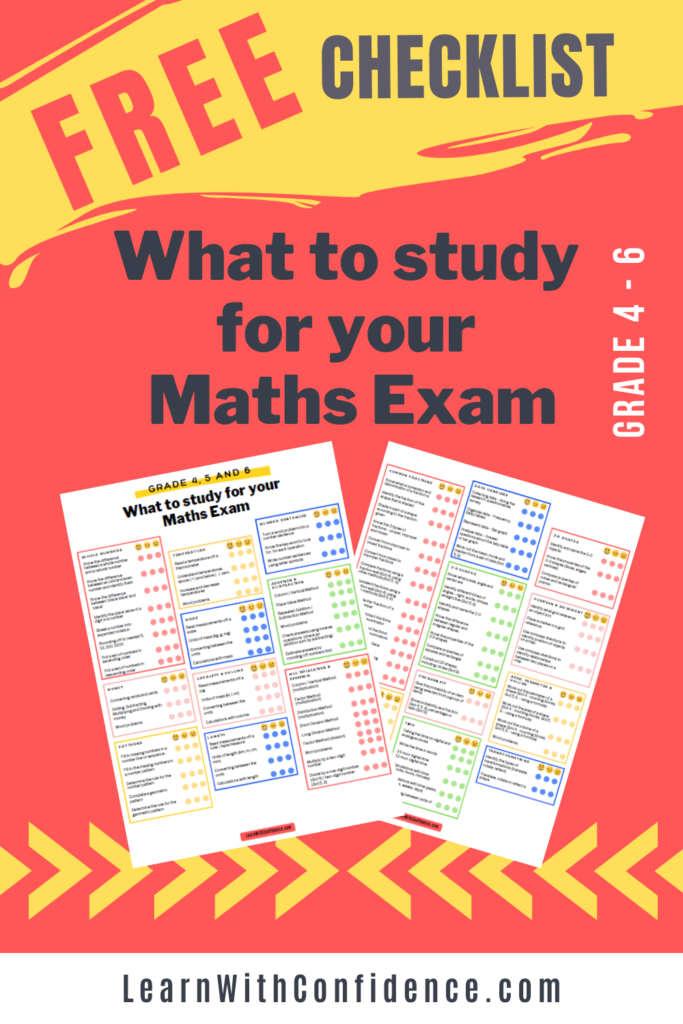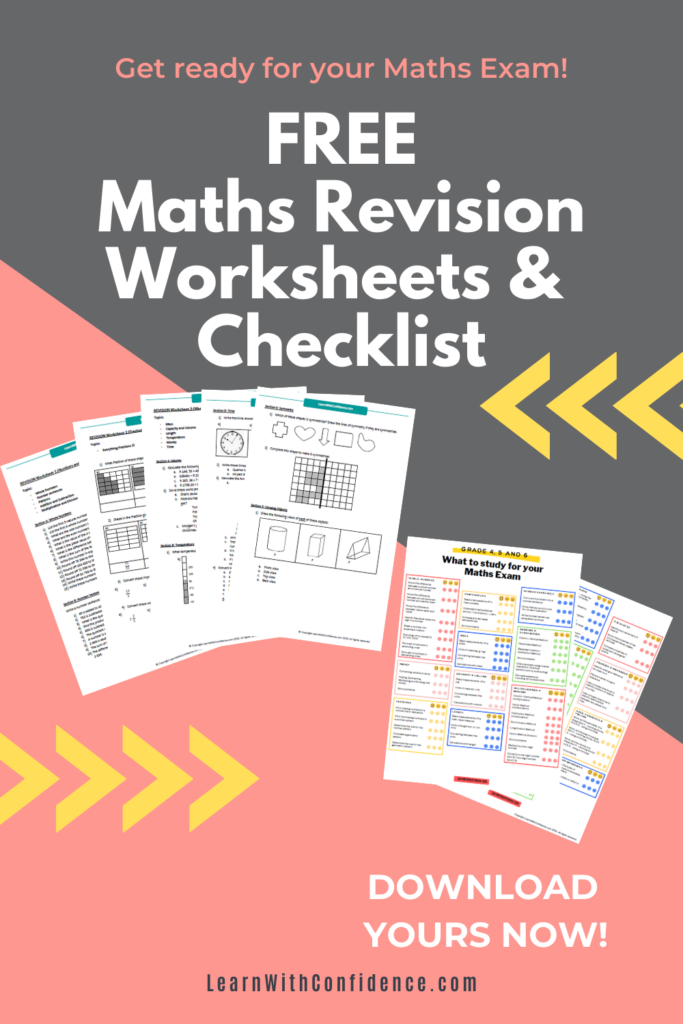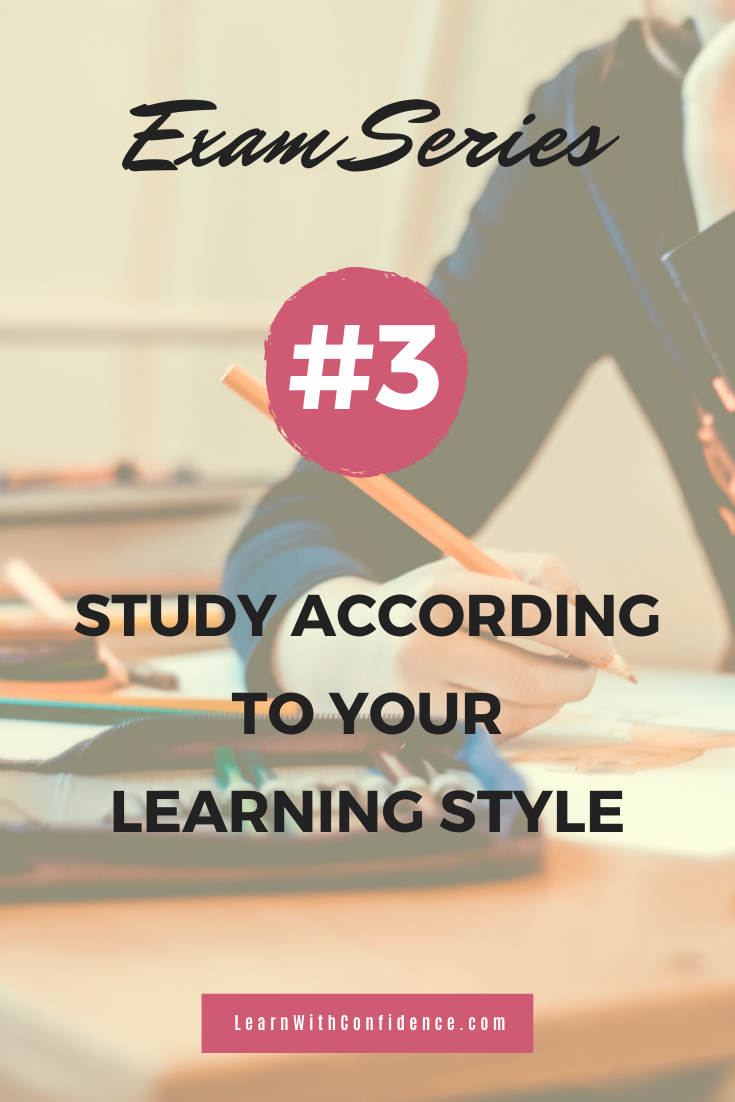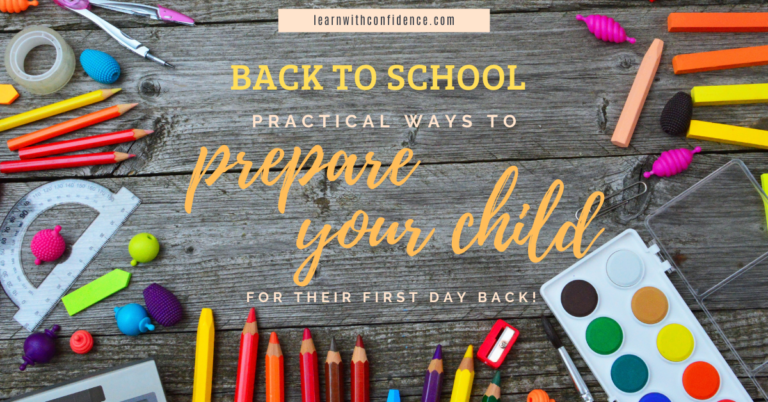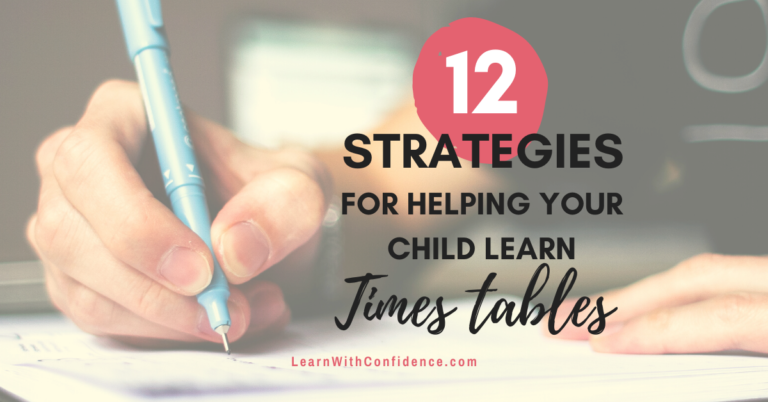How can I help my child study for Maths?
With exams JUST around the corner, as a mom, you are no doubt trying to help your child prepare well for their exams. But some subjects are easier to learn than others and maybe when your child has to study for maths, that sends shivers down your spine.
Maybe, growing up, you had a great time with Maths and absolutely love it, or maybe you didn’t. Maybe your child loves it, or maybe they hate it and it makes them super anxious.
If you have no idea how to help your child prepare for their Maths exam – here’s how to do it!
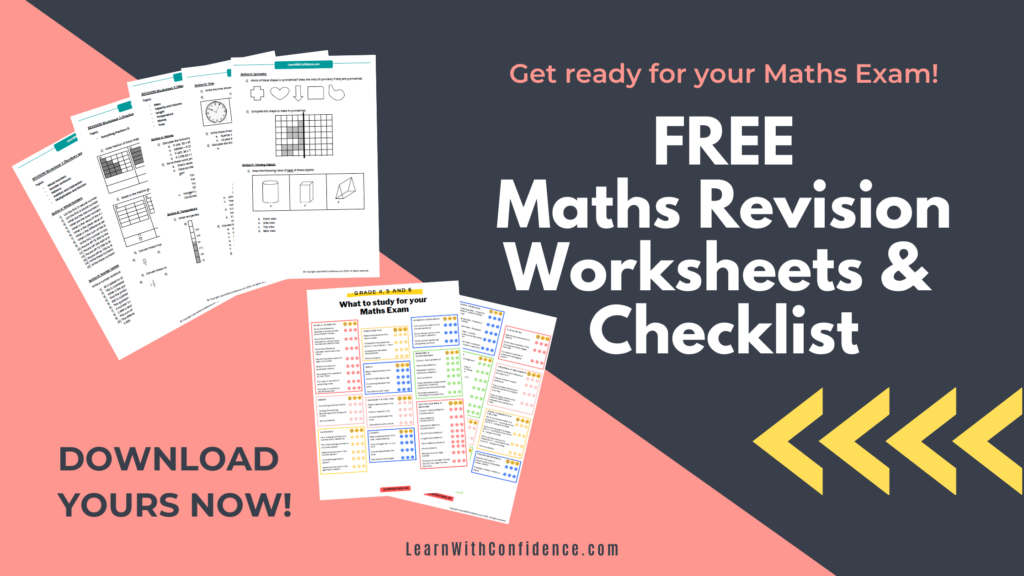
Can you actually “study” for Maths?
As a teacher, when I tell the kids what they need to “study” for Maths they often look at me like “Huh? Study? You can’t study for Maths!”
The result – they walk into their test or exam, having browsed through their books but are actually completely unprepared. For those who have grasped the concepts well during class they’ll do ok, the others…not so much…

So CAN my child actually “study” for Maths?
The simple answer is YES, of course. But, the way your child studies for Maths will be different to how they study for their other subjects.
In an exam, your child will be asked to recall information, show understanding and apply knowledge and skills to different situations. Studying must prepare them to do all that. So, when it comes to studying for Maths, it’s about helping your child learn the “theory”, making sure they understand it and giving them the chance to use that info to solve Maths sums and problems.
So, if you can study for Maths, how do you actually help your child to do it!?
My Best Tips to study for Maths
1) Attitude is everything!
When it comes to Maths, the battle is won or lost in the mind! So, the first thing to do is to help your child to be positive about it! Even if that means putting your own feelings aside.
This article on Maths Anxiety has some great info on how to do that and how to help your child if they struggle with being anxious about Maths.
2) Make a list of the content
What does your child actually have to study?
Go through their textbook or workbook, or even better, their exam study outline and make a list of all the topics.
So, that’s quite a bit of work…
But here’s some good news – I’ve done it for you! At least for Grade 4 – 6 learners. So here you go, click here to download your FREE Checklist of What to Study for your Maths Exam.
3) Learn the Rules
This is something you can help your child study for Maths in a more “traditional sense”, as in studying off-by-heart, using study notes or mindmaps.
It can be a bit tricky to ‘find’ the rules because sometimes they’re taught but not always written down.
Help your child start a Maths Rule Book, so as they study through their work they can write down rules that apply to each topic. These can be actual rules or rules your child makes up to help him or her learn the work better.
Here are some examples of rules your child can study for Maths:
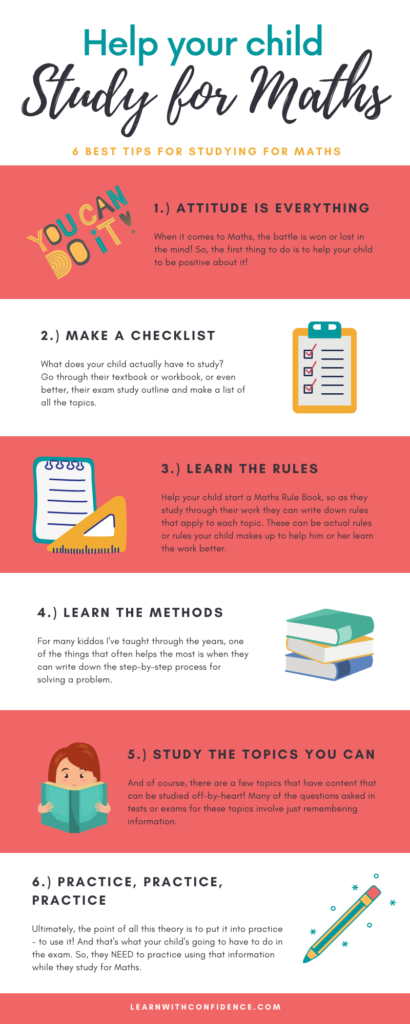
- When you’re multiplying, the numbers can be in any order. When you’re dividing, the order of the numbers matters!
- When you’re adding, the numbers can be in any order. When you’re subtracting, the order of the numbers matters!
- When you multiply or divide by 1 the number stays the same.
- When you add a zero the number stays the same. When you multiply by a zero, the answer is always 0.
- Rules for drawing a bar graph – heading, labels for the x-axis and y-axis, intervals (gaps) on the axes, how to plot the information.
- Converting between units of measurement – learn the diagrams.
- Rules for rounding off numbers.
4) Learn the Methods
Methods are the how-to’s, the steps, the procedures of solving sums and problems in different ways.
For many kiddos I’ve taught and tutored through the years, one of the things that often helps the most is when they can write down the step-by-step process for solving a problem. All my worksheets explaining new concepts have step-by-step explanations of how to solve each question, so feel free to check those out here.
Here are some methods your child can write down and study for Maths:
- 3 steps for solving word problems (number sentence, working out, answer sentence)
- How to convert from mixed to improper fractions, and back again.
- How to put numbers in ascending or descending order.
- How to convert between units of measurement (mass, length, capacity).
- How to draw a bar graph (or any other type of graph) – the structure and set up such as headings, labelling of axes and how to plot them.
- How to convert between units of time (how many years in a decade, hours in a day, etc.).
- Methods for adding and subtracting (eg: Column / Vertical Method, Place Value Method, Adding on method, Repeated addition or subtraction method.
- Methods for Multiplying (eg: Column / Vertical Method, Factor Method, ‘Box’ Method, Distribution Method).
- Methods for Dividing (eg: Short division, Long division, Factor Method (what we call the “cake method”)).
5) Study the topics you can

And of course, there are a few topics that have content that can be studied off-by-heart! Many of the questions asked in tests or exams for these topics involve just remembering information.
These are topics your child can learn off-by heart when they study for Maths:
- 2D shapes and their properties.
- 3D shapes and their properties.
- Types of transformations.
- The formulae for working out area, perimeter and volume.
- The formulae for working out the mean, median and mode of a data set.
- The types of fractions and what they look like.
- The key words used in word problems to tell you what operation to use (eg, sum of = add, product = multiply, quotient = divide, difference between = subtract).
- The units of time and how they convert between each other (eg: 1 decade = 10 years).
6) Practice, Practice, Practice.
Ultimately, the point of all this theory is to put it into practice – to use it! And that’s what your child’s going to have to do in the exam.
So, they NEED to practice using that information while they study for Maths.
This is where they get to check if they can remember information, if they understand the concepts and if they can use it solve a problem.

Here’s an analogy – use it if your child loves sport: When you play a sport you can learn the rules, you can learn the strategies, but the ultimate test of how good you are at the sport, is in how you play it. So, that’s why you practice every week. And the more you practice the better you get at the sport. Why? Because the neural pathways and muscle memory you need to master the sport become more established over time.
It’s exactly the same with Maths. The more your child practices, the more likely they are to remember, understand and be able to apply the information they’ve studied.
How to “practice” when you study for Maths
So, what does this “practicing” actually look like in real life?
Here’s what I’d advise:
- Re-do your cycle tests from Term 1, Term 2 and Term 3. Cover up the original answers and do the test on another paper, then use the corrections to mark your answers.
- Re-do class tests and revision tasks. Cover up your original answers and do the test on another paper, then use your corrections to mark your answers.
- Make a list of all the sections you are confident in. Then make a list of the sections you need to improve on. Identify if you need to learn something better (concept) or if you just need more practice (skills). Use this FREE Checklist to help your child – it is the perfect way to do this!!
- Do some extra practice in the topics you need to improve on. If you need some worksheets to get your child practicing and preparing for the upcoming Maths exam – here you go! And….they’re FREE! Just click on this link and you’ll be able to download them straight away!
- Do at least ONE ‘past paper’ before your exam: Stick to the time limit, do it as if you were doing an exam, without looking at your book or asking for help. Then mark it and see how you did and where you can improve!
You got this, Mama!
Whew! That’s a load of info! But Mama, you can totally do this! You can totally help your child ace the preparation for this exam!
One of my favourite things as a teacher is seeing those kiddos who have really worked hard and put the effort in, succeeding. When they get that test paper back and their eyes light up and they’re like “Wow! I can actually do this!”
That’s what I want for your child too – and I know you want even more than I do!
All the best as you prepare for these exams!

I would love to connect with you and hear all about if these resources were helpful and how your child has coped through exams!
I’d also love to include you in this community of Mommies as we support each other and grow together to become the best moms we can be!
Please subscribe to my emailing list here and I’ll make sure I keep you in the loop on all the latest blog posts, freebies and resources!
Other Resources you may find useful:


